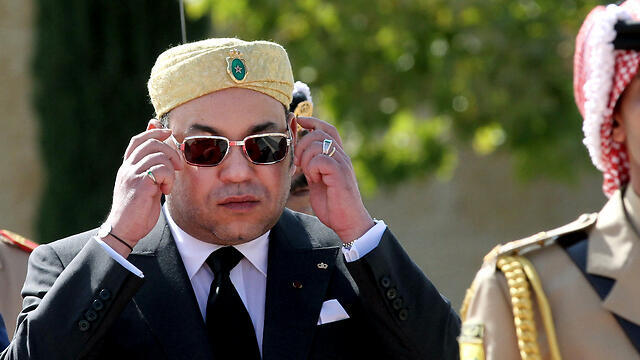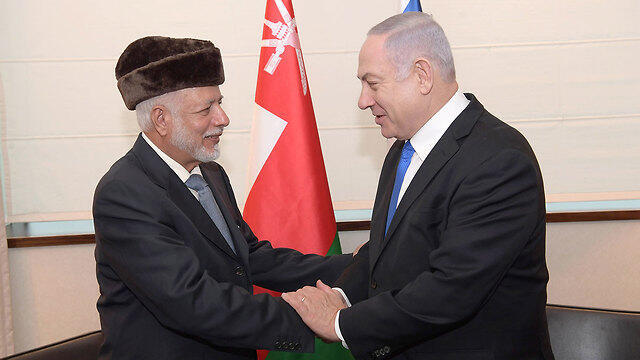Getting your Trinity Audio player ready...
Prime Minister Benjamin Netanyahu is trying to consolidate inroads made into the Muslim world by seeking to visit Morocco ahead of national elections slated for April 9. This comes on the backdrop of reports that Netanyahu met in secret with Rabat’s foreign minister last September in New York.
and Twitter
In the past, Israeli officials have been tight-lipped about back-channel contacts with countries that do not officially recognize the Jewish state. This is why an official trip to the North African nation would be viewed—certainly by Israelis—as another milestone on the premier’s growing list of diplomatic breakthroughs.
Bilateral ties between Jerusalem and Rabat were first established after the signing of the Oslo Accords in the 1990s, but were then severed following the outbreak of the Second Intifada—a period from 2000-2005 characterized by Palestinian suicide bombings in Israeli public spaces. Despite the political rupture, the two countries still engage in small-scale trade and permit tourism exchanges.
Bruce Maddy-Weitzman, Professor of Middle Eastern and African History at Tel Aviv University, told The Media Line that “Morocco is unique among (Muslim-majority) nations” as its relations with Israel are “based on common interests and the affinity between the country’s ruling family and the local Jewish community.”
Furthermore, both nations are pro-Western and cooperate quietly on security matters, he added. Unlike other regional states, Rabat has openly recognized Jewish contributions to Moroccan culture.
“The Moroccan government has an interest in reminding its citizens and the rest of the world that it looks fondly upon the Jewish population,” Maddy-Weitzman said. In addition, King Mohammed VI has promoted Holocaust education in schools.
As with many Middle East countries, however, Israel’s biggest obstacle to enhancing ties with Morocco is the ongoing conflict with the Palestinians.
“The Palestinian cause lies at the heart of the Muslim world,” said Einat Levi, a researcher at the Mitvim Institute specializing in Moroccan-Israeli relations. “Even if Netanyahu’s trip is successful, its potential will still be limited in the long-run if the conflict isn’t resolved.”
The main reason Morocco would want a meeting with Netanyahu is due to his influence over the Trump administration, Maddy-Weitzman explained, as “Israel is seen as a path to Washington.”
To this end, Morocco wants Israel and the US to support its claims to a parcel of land in the Western Sahara previously under Spain’s control. US National Security Adviser John Bolton recently suggested that a referendum be held to determine the fate of the contested region, a move that was met with great consternation by Moroccan officials.
Nevertheless, Maddy-Weitzman is skeptical that the Netanyahu visit will take place. “The message has already been floated in Washington (regarding the land in the Western Sahara) and it is unlikely the king will give the Israeli premier that kind of win.”
There might also be a political cost for the king to host an Israel delegation, Levi said. “It may trigger criticism from movements seeking to boycott Israel or from other Arab countries in the region.”
The Foreign Ministry in Jerusalem declined to comment on the purported visit.



